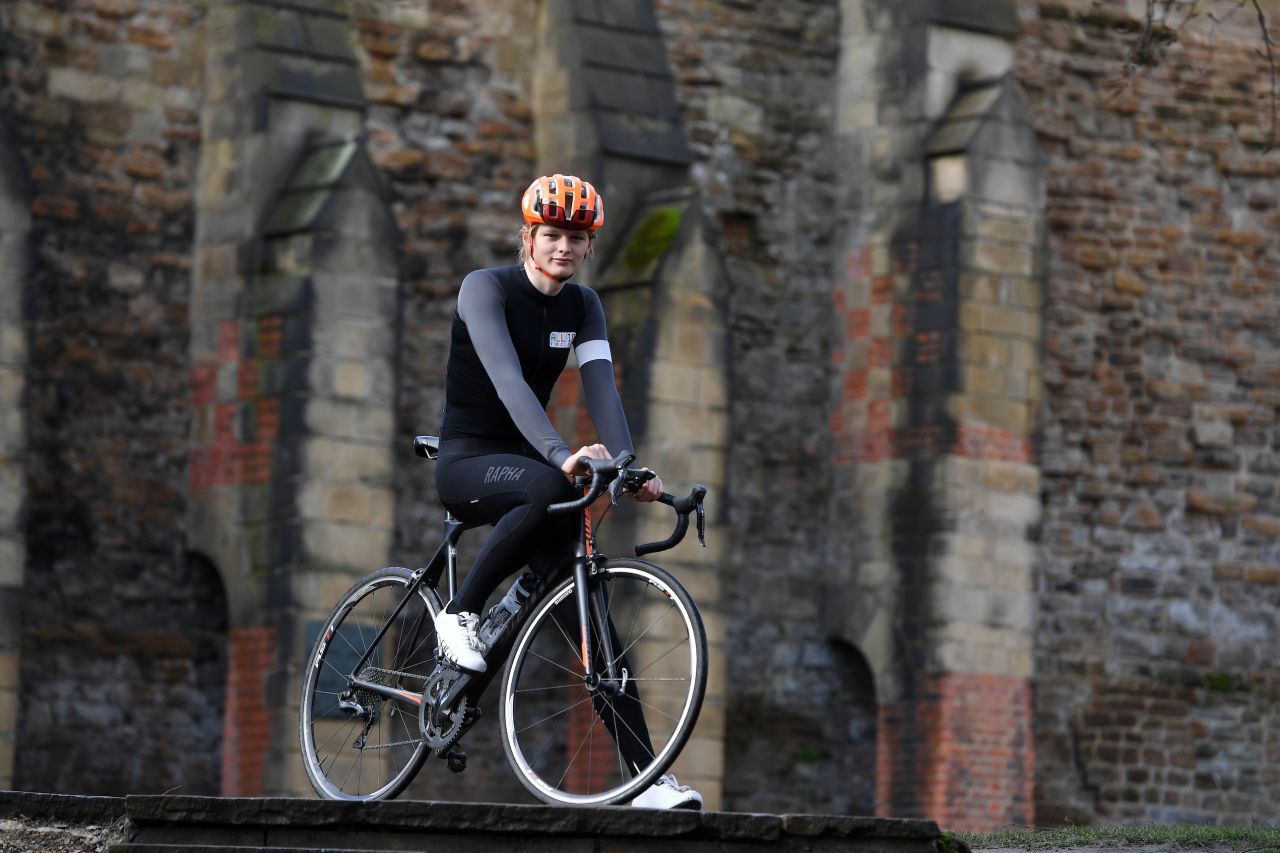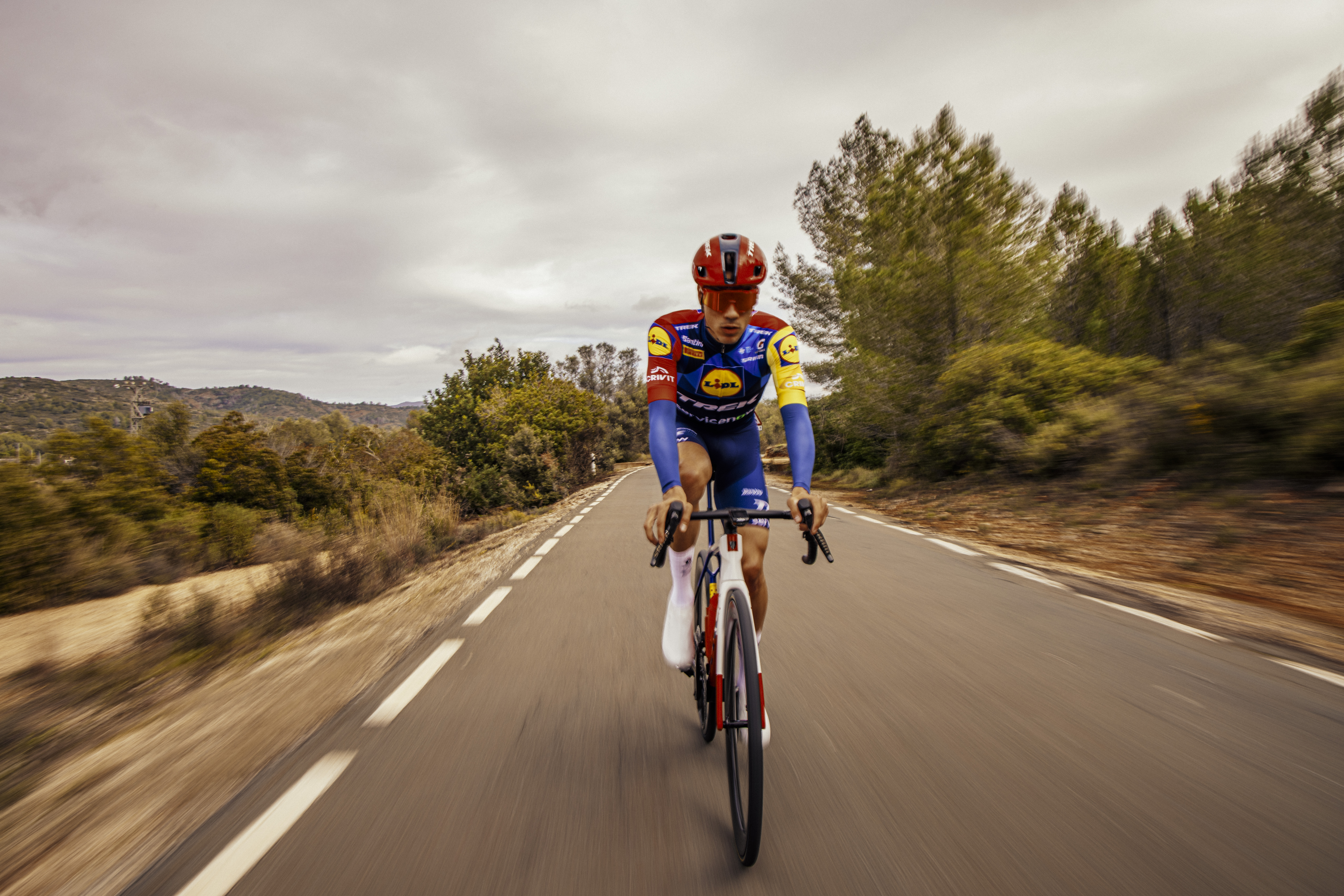UCI, British Cycling block transgender athlete from track championships
'I just want to race', says Emily Bridges

The latest race content, interviews, features, reviews and expert buying guides, direct to your inbox!
You are now subscribed
Your newsletter sign-up was successful
The UCI and British Cycling are preventing transgender athlete Emily Bridges from competing at this weekend's National Omnium Championships despite her providing medical evidence that she has met the current specified limits for testosterone for the required 12-month period.
In a statement issued on Friday, Bridges, who was part of British Cycling's Senior Academy programme in 2019 as a male racer and came out as transgender in 2020, says that despite British Cycling's statement that it was the UCI who deemed her ineligible to race, "I still have little clarity around their finding of my ineligibility under their regulations."
"For the last six months, I have been in contact with British Cycling and the Union Cycliste Internationale (UCI) over the eligibility criteria I would need to meet as a transgender woman in order to race in the female category at the British National Omnium Championships this Saturday, 2 April 2022. In that time, I have provided both British Cycling and UCI with medical evidence that I meet the eligibility criteria for transgender female cyclists, including that my testosterone level has been far below the limit prescribed by the Regulations for the last 12 months."
Sports federations have been increasingly squeezed between the reality of sex and gender spectrums and the societal reaction to this reality. High profile cases such as those of track runners Caster Semenya and Dutee Chand, who underwent intrusive testing and intense public scrutiny, highlighted the need for rules to ensure both fairness and inclusion.
The IOC in 2015 drew up a framework to incorporate athletes who have 'differences in sex development' (DSD) which encompasses a number of rare genetic and developmental states that was previously described as 'intersex', and gender identity.
They initially required that transgender women test below 10nmol/mL for 12-months before competing in the women's categories despite evidence that so-called 'biological females' can often exceed these limits.
That policy has been adopted by most international sports federations, with the UCI among those who halved the testosterone limits, in 2020 to 5nmol/mL.
The latest race content, interviews, features, reviews and expert buying guides, direct to your inbox!
Transgender athletes have been the subject of a vicious legislative campaign in the United States and pressures in the UK, in particular after a 2021 report suggested that transgender females retain the physical advantages of a male body even after suppressing testosterone.
Although the IOC updated its framework last month with the aim of moving away from hormone limits, UCI president David Lappartient indicated to The Guardian this week that his organisation has come under pressure from women's unions to ensure fair competition.
"It is a very sensitive topic at the moment," Lappartient said. "The question is, is there a memory from your body from what you were before? Do you have an advantage for this? Do we have a breach of fair competition? When you ask this question, it is not to challenge the fact that people want to transition. We fully respect that. But I can also really understand from ladies [who] say: ‘OK, we don’t accept this.’ At the moment, the union of women’s riders are completely against this and challenging the UCI. So we are in between."
Cyclingnews reached out to Lappartient and representatives from the CPA and The Cyclists' Union (TCU) to confirm the pressures. The CPA and UCI did not respond. The TCA suggested the pressure was coming from the CPA, which is the UCI's recognised riders' union.
"The Cyclists’ Alliance (TCA) will support and treat Emily Bridges with the kindness, dignity and respect that she deserves as a person. We do not condone the harassment that Emily has received," the TCA wrote to Cyclingnews.
"The Cyclists’ Alliance’s mission is to strive for fairness in professional cycling and ensure 100% of female cyclists have a safe and stable working environment. We recognise that achieving inclusion across all the strands of the Equality Act is complex and nuanced and that the Union Cycliste Internationale (UCI) and National Federations are finding the task of developing appropriate policy and protocols difficult. We agree with David Lappartient's statement that existing UCI transgender guidelines are insufficient and need to be addressed.
"We believe more can be done to open the dialogue and canvas the opinion of stakeholders involved in women’s cycling so that everyone is given an appropriate platform in which to contribute, and that different views and experiences are heard and respected. The TCA is willing to be consulted by the UCI, National Federations and the CPA Women and will continue to represent the view of its members.
"We believe that the UCI and British Cycling have demonstrated unfairness by not adhering to their own eligibility criteria set (for those who transition from male to female to compete in the women's category) and ask for transparent clarification to be given to Emily Bridges on their decision."
Meanwhile, Bridges is also caught in between, having insisted she has followed the rules and still being frustrated to not be informed of why she is being blocked from competing.
British Cycling said the reason was that Bridges still has a valid male UCI license and cannot compete until it expires. UCI licenses are issued for only one year, and Bridges came out as transgender two years ago.
"I am an athlete, and I just want to race competitively again, within the Regulations set by British Cycling and UCI after careful consideration of the research around transgender athletes," Bridges wrote in her statement.
"No one should have to choose between being who they are, and participating in the sport that they love."
As a result of the public coverage of her exclusion, Bridges says she has been "relentlessly harassed and demonised by those who have a specific agenda to push.
"They attack anything that isn't the norm and print whatever is most likely to result in the highest engagement for their articles, and bring in advertising. This is without care for the wellbeing of individuals or marginalised groups, and others are left to pick up the pieces due to their actions."
"I've had to deactivate my social media to prevent the targeted abuse I am receiving, and block websites to stop seeing them. This is despite the fact I have not yet raced in the female category. I have been judged despite a total lack of evidence against me, purely because I am trans.
"I am in contact with British Cycling and UCI requesting clarity around my alleged ineligibility, and I hope that they will reconsider their decision in line with the Regulations. Thank you to everyone who has supported me through this, your messages have meant the world this past 10 days."
Cyclingnews is the world's leader in English-language coverage of professional cycling. Started in 1995 by University of Newcastle professor Bill Mitchell, the site was one of the first to provide breaking news and results over the internet in English. The site was purchased by Knapp Communications in 1999, and owner Gerard Knapp built it into the definitive voice of pro cycling. Since then, major publishing house Future PLC has owned the site and expanded it to include top features, news, results, photos and tech reporting. The site continues to be the most comprehensive and authoritative English voice in professional cycling.
